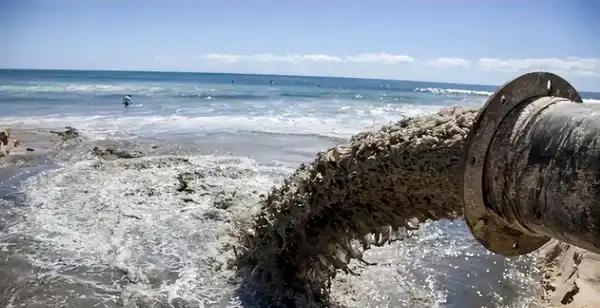Nuclear Waste Leak at South Korean Power Plant Raises Environmental Concerns
A South Korean nuclear power plant accidentally discharged 29 tons of nuclear waste liquid into the sea without proper sample analysis, prompting investigation by the Atomic Energy Safety Commission and raising concerns about marine contamination.

On January 12, 2025, South Korea’s nuclear safety authorities reported a concerning incident at the Wolseong Nuclear Power Plant in Gyeongju, Gyeongsangbuk-do Province. The facility experienced an unauthorized release of 29 tons of nuclear waste liquid directly into the ocean, bypassing crucial safety protocols and sample analysis procedures.
This incident marks the second significant leak at South Korean nuclear facilities within a year. A previous discharge of 2.3 tons of contaminated water occurred in June 2024 at another storage facility, highlighting recurring safety concerns in the nation’s nuclear infrastructure.
The immediate response from plant operators included shutting off valves to prevent further leakage. The Korea Hydro & Nuclear Power Company, which manages the facility, conducted preliminary testing of remaining samples, claiming radiation levels were “within normal discharge parameters.” However, independent verification of these claims is pending as the Atomic Energy Safety Commission launches a comprehensive investigation.
The environmental implications of such nuclear waste discharge are particularly concerning for marine ecosystems. Radioactive materials can accumulate in marine life through the food chain, potentially affecting both local fishing industries and broader ocean health. Key radioisotopes often present in nuclear waste, such as tritium and iodine-131, can persist in the environment for extended periods.
The geographic location of the Wolseong plant, situated near the East Sea (Sea of Japan), means that ocean currents could potentially carry contaminated water to neighboring regions. This raises concerns about transboundary environmental impacts and highlights the need for enhanced international cooperation in nuclear safety protocols.
The incident has sparked renewed debate about nuclear power safety standards in East Asia, particularly given the region’s high concentration of nuclear facilities. It also emphasizes the critical importance of proper waste management procedures and the potential consequences of operational oversights in nuclear power generation.
Moving forward, experts stress the need for more rigorous safety protocols, improved emergency response mechanisms, and greater transparency in reporting nuclear incidents. The outcome of the ongoing investigation will be crucial in determining necessary reforms to prevent similar incidents in the future.
This event serves as a reminder of the complex challenges facing nuclear energy programs and the vital importance of maintaining stringent safety standards in nuclear waste management. The international community awaits detailed analysis of environmental impacts and potential long-term consequences of this unauthorized discharge.